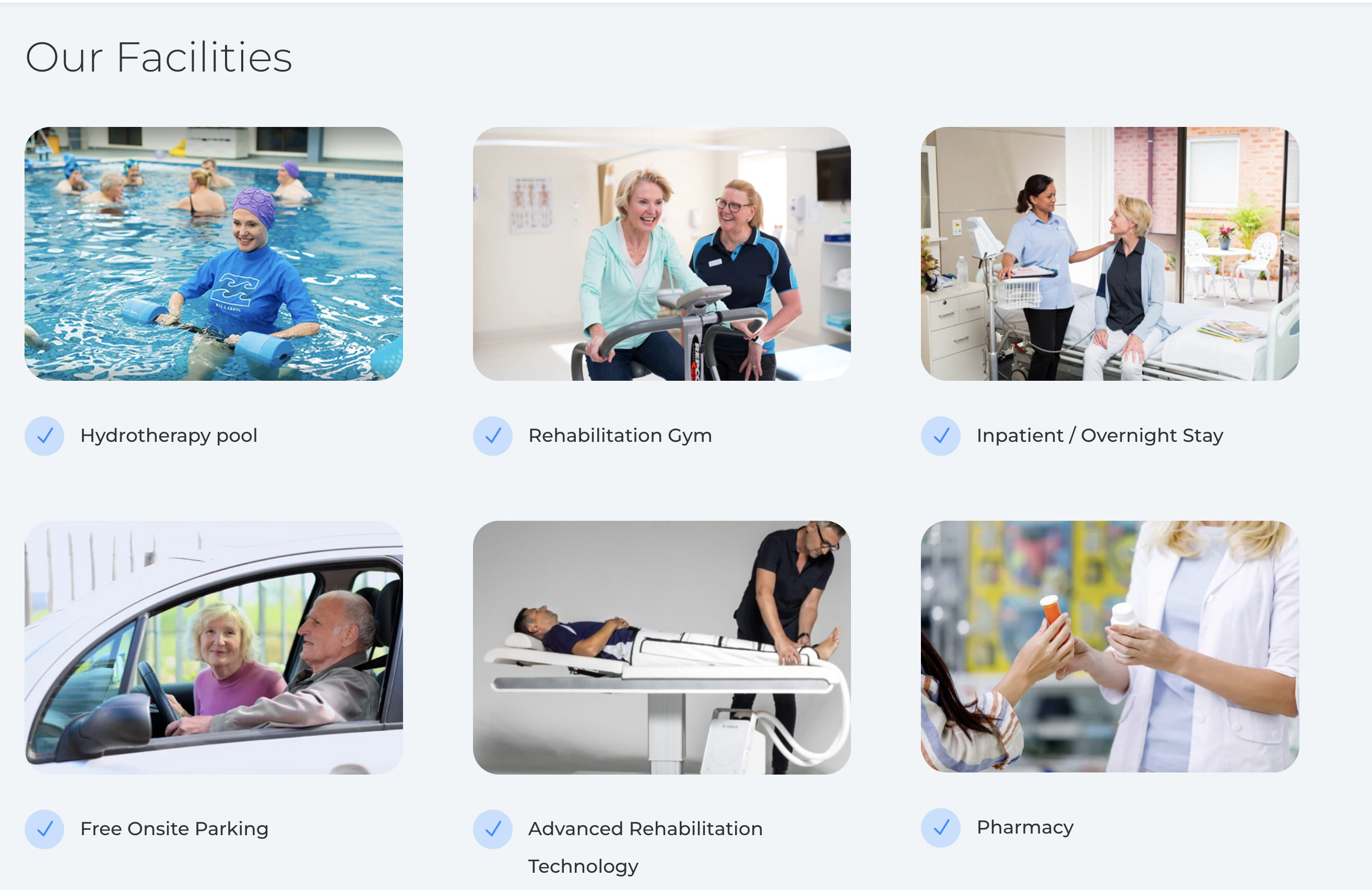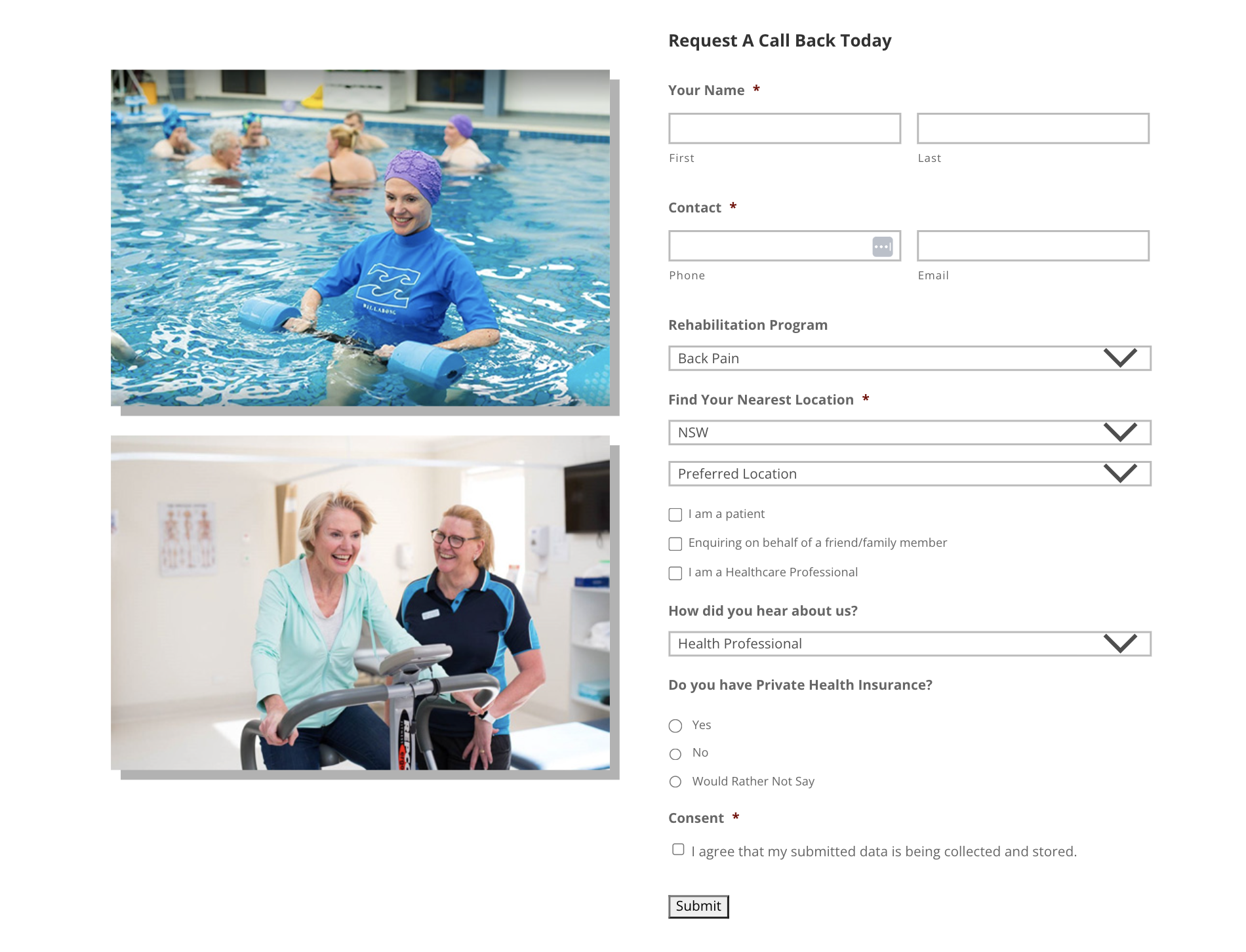This program offers intensive therapy and support to help patients regain their independence and improve their quality of life.
Take the first step towards a healthier and more fulfilling life today!
Who can benefit from this program?
Patients who have Parkinson’s Disease, Multiple Sclerosis, Cerebral Palsy or patient’s who have had a recent neurological event such as a stroke.
About The Program:
Our Neurological Reconditioning Program is designed to improve patient’s confidence and independence with daily tasks, exercise tolerance and to educate the patient’s following a neurological event or exacerbation of an illness. Through our comprehensive rehabilitation service our Neurological Reconditioning team will develop an individualised neurological management plan tailored to your needs.
The program aims:
Each patient is assessed individually by our rehabilitation team under the direction of an accredited Rehabilitation Specialist, together they develop a rehabilitation plan according to the individual’s particular needs. Our multidisciplinary team will work with each patient to help them regain independence and resume their day to day life.
The aims of our Neurological Reconditioning Program include improving:
- mobility
- endurance
- general muscle strength and flexibility
- independence with self-care
- physical, psychological, and social recovery
- neurological disease and reducing it’s progression
- lifestyle and reducing risk factors
- successful return to work, home and recreational activities
Our team will work in collaboration with you, your GP and other specialists to achieve a holistic assessment and integrated treatment regime dedicated to minimising the effect of disability.
This program may include:
- 2 – 3 sessions per week
- 1.5 – 3 hours per session (depending on health fund)
- Refreshments provided
- Individual assessment and goal setting
Facilities include: (Working on image display with Nothy)
Expert Rehabilitation Led By Our Multidisciplinary Team
Our 15-member healthcare team offers patient-friendly, multidisciplinary rehabilitation. Regular team meetings monitor your progress and your case manager will review goals and put you at the centre of every decision.


Admission Process
The admission process for inpatient rehabilitation typically involves a referral from a hospital or healthcare provider. Once referred, a rehabilitation team will assess the patient to determine their individual needs and create a treatment plan. This team may include physicians, nurses, physical therapists, occupational therapists, speech therapists, and social workers.
Treatment
Inpatient hospital rehabilitation involves intensive therapy to help patients regain function and independence. The treatment plan will be individualized based on the patient’s specific needs and goals. Therapy may include:
- Physiotherapy: Focuses on improving mobility, strength, and endurance. This may include exercises to improve balance, gait training, and activities to increase range of motion.
- Occupational Therapy: Occupational therapy focuses on improving daily living skills such as dressing, grooming, and eating. It may also include work-related tasks, such as typing or using tools.
- Speech Therapy: Speech therapy focuses on improving communication, language, and swallowing skills.
- Medical Management: Medical management may include medication management, wound care, and other medical interventions to help manage symptoms and promote healing.
Length of Stay
The length of stay in inpatient rehabilitation varies depending on the individual patient’s needs and progress. Typically, patients will stay in the hospital for several weeks to several months. During this time, patients receive intensive therapy and support to help them regain their independence and improve their quality of life.
Discharge Planning
Discharge planning is a crucial part of inpatient rehabilitation. The rehabilitation team will work with the patient and their family to develop a plan for after they leave the hospital. This may include referrals to outpatient therapy, home health services, or community resources to help with ongoing care and support.
Conclusion
Inpatient hospital rehabilitation is a comprehensive program designed to help people recover from serious injuries or illnesses. This program offers intensive therapy and support to help patients regain their independence and improve their quality of life. While the length of stay and treatment plans may vary depending on the patient’s individual needs, inpatient rehabilitation offers an important opportunity for recovery and rehabilitation.
Length Of Treatment
The length of stay in inpatient rehabilitation varies depending on the individual patient’s needs and progress. Typically, patients will stay in the hospital for several weeks to several months. During this time, patients receive intensive therapy and support to help them regain their independence and improve their quality of life.
Discharge Planning
Discharge planning is a crucial part of inpatient rehabilitation. The rehabilitation team will work with the patient and their family to develop a plan for after they leave the hospital. This may include referrals to outpatient therapy, home health services, or community resources to help with ongoing care and support.
Insurance & Payment Options

Available in Both Inpatient & Day Only Rehabilitation
Our comprehensive and personalised approach ensures that you receive the highest level of medical care. Through tailored rehabilitation strategies, personalised therapeutic interventions, and continuous support, we will help you on your journey towards optimal health, vitality, and functional recovery.

Make An Enquiry Today

